You’ve loaded up on sunscreen and you’re ready to get those bags packed. You’re desperately in need of a vacation! But…your travel might not go to plan this summer, and that’s something you’ll need to be prepared for.
The situation with COVID-19 continues to change and develop, travel costs are going UP, and other considerations could complicate your summer trips. Today we’re breaking down the many reasons why travel, specifically travel abroad, might be really difficult this year and what you can do to be prepared.
Will People Still Go International?
To learn more about the situation with international travel, what guests should expect, and other things, we spoke with Professor Alan Fyall from the University of Central Florida. Fyall is the Associate Dean of Academic Affairs, Interim Chair of the Department of Tourism Events and Attractions, and the Visit Orlando Endowed Chair of Tourism Marketing. He has an expertise in destination marketing and management.
Fyall noted that travel to Florida is booming, but it is largely made up of domestic visitors. He shared that there are some international visitors coming, but that it is nothing compared to normal. According to Fyall, it shows the “sheer volume of domestic demand.”
But he also noted that it shows just how many people might be traveling domestically, though they may have previously considered traveling internationally. As Fyall puts it, “it’s complicated.” Let’s get into some of the reasons why Fyall and others note that international travel is complicated right now and could continue to be complicated this summer.
Airline and Airport Troubles
Staffing Shortages, Cancellations, and Other Issues
According to CNN, aviation is at the “top of the chaos board.” There are a variety of things impacting the aviation industry, including a lack of crew on flights (leading to canceled flights or a smaller number of available flights), understaffing at airports (leading to long lines), and demand that simply outpaces supply.
According to consumer advocate Christopher Elliot, “during the pandemic [airlines] downsized and laid staff off, and now demand has come surging back and they’re caught off guard. They haven’t been able to staff up fast enough to meet demand.” (CNN)
In mid-April CNN shared that in the United Kingdom, the “chaos at major airports ha[d] made the news every day for the past couple of weeks.” According to CNN, in the U.K., “hundreds of thousands of travelers have seen their flights delayed or canceled, or have simply missed them thanks to the chaos engulfing some major UK airports.”
Heathrow airport and Manchester airport have seldom escaped some kind of news coverage since March. Staff shortages at both airports have created a situation where there are hours-long lines for check-in, security, and passport control. (CNN )
In the US, things have been “brewing” for a while, since domestic travel has started to recuperate. (CNN) Orlando International Airport, for example, was recently placed within the top 10 list of busiest airports in the United States.
Both British Airways and easyJet have also been canceling a number of flights lately. According to CNN, both have been impacted by “staff shortages,” which has led them to cancel dozens of flights every day.
As Professor Fyall puts it, cancellations, delays, and things of that matter are just “part and parcel” of it at the moment. He also noted that some international carriers have reduced their number of flights, keeping occupancy levels high, though flying less.
But, overall, Fyall said that you’ve “basically got to be prepared for delays, cancellations, very expensive car hire, and COVID problems.” He said you’ve just got to “roll with it” when it comes to differing rules and regulations, and internationally it’s even more complex.
The lack of staff is also leading to complications for luggage. For one thing, it is leading to longer waiting times for those trying to get their luggage. One family flying from Italy to London said that they waited 3 HOURS for their luggage to arrive at Heathrow airport after their plane arrived. (CNN)
But it can also lead to some complications in general with luggage handling. According to CNN, Stansted Airport (located in the United Kingdom) advised passengers traveling during Easter to drop off their luggage 24 HOURS in advance of their flight. (CNN)
Things have also become a bit interesting from a legal perspective. Recently, a U.K. consumer organization called “Which?” wrote to the Civil Aviation Authority and said they had evidence from customers of British Airways that the airline had not been “informing them of their rights regarding cancelations and delayed flights.” In a statement to Which? Travel, British Airways said “We always meet our legal obligation.” (CNN)
According to Rory Boland (editor of Which? Travel), the staffing issue is a big one. Reportedly, individuals who worked in the aviation industry and were fired during the pandemic have told Boland that they’ve been offered to come back under “worse pay and worse conditions.” Boland says “Unless airports and airlines increase their offer, they’ll take a long time to increase staff.” (CNN)
Some have tied part of this staffing issue to Brexit, the U.K.’s exit from the EU. Kully Sandhu from the Aviation Recruitment Network explained that, for aviation jobs in London, they used to receive 50% to 60% of the applications from EU nationals. Sandhu shared, “Not having this European workforce has not only caused problems with recruitment, but it also means that airports have fewer employees who are able to speak a European language. This was a major benefit and not having that facility can impact the time it takes passengers to get through an airport.” (CNN)
According to Sandhu, it could take up to 12 months for staffing at airports in the U.K. to get back to pre-pandemic levels. (CNN)
Fyall said that travel complications are happening everywhere, even though people think it’s exclusive to the U.S. “It’s a mess everywhere,” he said. Speaking about staffing, he said it’s as though the workers have just vanished. Even places like France, where Fyall said that hospitality work is held in high regard, is experiencing issues with staffing. “It’s bizarre,” he shared.
Lucy Moreton, the “general secretary of Immigration Services Union (ISU),” has told the BBC that the Border Force, which is responsible for checking people coming into the U.K. is “catastrophically understaffed.” (CNN)
Prices
You may already be feeling like your airfare has increased in cost, but prices for flights are only expected to continue INCREASING, largely due to high jet fuel costs. CNBC explained that jet fuel costs rose by a whopping 32% in just one week at one point earlier this year.
Professor Fyall echoed this and noted that gas prices are “a lot.” Fyall shared that this is slowly working its way onto airline fares and will likely work their way through cruise fares too. According to Fyall, “everything over the next two to three years, everything is gonna go up. period. And in every country.”
Fyall said it really doesn’t matter what country you look at, every developed country, despite their different economic systems, political systems, etc. is experiencing the same inflationary problems. Fyall noted that “Everybody’s suffering from the post-pandemic supply chain, inflation boosting scenario.”
For the next few years, Fyall said that this will just make travel really expensive and there’s no way around it.
Fyall also discussed prices generally and how there is a higher price index, but not everywhere. Because less people traveled during COVID or may be traveling now still due to COVID, some places may have lower prices to reflect that. So you might actually find that a trip to a place that might normally be very expensive, is actually cheaper at this moment.
Technical Issues
Technical issues could also impact your flights. In the past, we’ve seen technical issues result in cancelled flights and other delays. That’s something that isn’t specific to the U.S. According to CNN, on the “opposite side of the pond” technical issues have also impacted British Airways.
Back on February 26th, a “systems disruption” actually led to the airline grounding ALL shorthaul flights. It was the 2nd technical failure they had experienced in just 10 days.
Heathrow Airport Press Release
We reached out to Heathrow Airport, and while they were unable to provide us with an interview or specific statements, they did direct us to a press release they published in mid-April.
In the press release, Healthrow notes that “The aviation sector has been rebuilding capacity ahead of a summer peak, so resources are stretched.” They shared that passengers should check with their individual airlines as to when they should arrive at the airport.
In terms of the upcoming summer specifically, Heathrow said that travel is expected to be busy with peak days close to the levels in 2019, and Heathrow is working to increase resources as quickly as they can.
They also noted that while the return in demand is “welcome,” “it is unclear whether the current surge in outbound leisure demand is sustainable, or what impact the war in Ukraine, high fuel prices, low GDP growth and potential new variants of concern will have on medium term demand.” Further updates are set to be shared by the airport soon.
Flying JetBlue to Disney World might be more difficult this summer — here’s why
Rental Cars
Aside from flights, there’s the issue of rental cars to consider. CNN notes that while flying to other spots in Europe (outside of the U.K.) might be “smoother,” the situation with car rentals might be more complicated.
CNN notes that a “A bubble car can set you back more than your hotel — and that’s before you factor in rocketing gas prices.” The term “bubble car” can refer to small, microcars.
Indeed, within the United States, rental cars can sometimes cost you MORE than your ticket to Disney World. Much of this is due to a shortage of certain computer chips utilized for cars coupled with the fact that many rental car companies sold off large amounts of their inventories during the early part of the pandemic, when travel came to much of a stop.
Now, these same companies are dealing with increasing demand, an inability to easily obtain a larger inventory of cars, and thus a shrinking supply.
ABC News shares that Russia’s war on Ukraine could complicate matters further when it comes to the car industry as a whole because it has made “critically important electrical wiring, made in the Ukraine” suddenly unavailable. In fact, according to ABC News, “Wells Fargo estimates that 10% to 15% of crucial wiring harnesses that supply vehicle production in the vast European Union were made in Ukraine.”
The wiring shortage has already started to impact factories in Germany, Poland, and more. ABC News notes that the damage on the auto industry from this war has emerged first in Europe, but production in the U.S. will likely be impacted eventually too. That could impact the auto industry as a whole and potentially impact rental cars as well. (ABC News)
According to CNN, the supply chain issues facing cars “means a global shortage of new cars being manufactured — which means rental companies are still struggling to fill their fleets.” Pair that with the nervousness that some car rental companies still feel around restocking fleets, coming from a sense of fear that another COVID-19 variant will “wreck havoc” on the industry, and things are not in a great place. (CNN)
Things could improve for a small period of time though. One Italian rental car company told CNN (informally) that prices could go down after Easter before going up again later in June. (CNN)
Click here to see what you need to know about renting a car in Orlando in 2022
COVID-19 Rules and Regulations
One of the big things Professor Fyall spoke to us about was COVID-19 and the changing rules and regulations that relate to it. As Fyall noted, COVID-19 has not gone away. We’ve seen this evidenced by rising case numbers or other indicators and even situations that have temporarily shut down international Disney parks.
Fyall notes that each country has different rules and regulations when it comes to COVID-19. Do you need a test? What type of test? Do you need a COVID-19 pass? All of those things can vary by country, so you’ll really need to do a “huge amount of homework” to know what’s required.
And, Professor Fyall noted, just because you get in the country, doesn’t mean you’ll be able to get into all of the tourist spots you want to visit while there. The museum, show, etc. you want to see might have its own specific rules in place, making matters even more complicated. Sometimes, he noted, getting into the country is actually the easy part!
There are also travel restrictions to consider. For example, Japan has very strict rules right now about who can and cannot travel there. And some things have shut down in China due to the COVID-19 situation there. So things could get complicated. Fyall noted that unless those traveling have a lot of money they’re prepared to be flexible with, they might ultimately decide to push their trip to 2023 or beyond.
As the situation with COVID-19, the BA.2 variant, and other variants continues to develop, things could keep changing.
Click here to see what you need to know about travel restrictions and COVID
Other Things Could Impact People’s Decisions to Travel Internationally
Aside from price, delays, etc. other things could make some hesitate when it comes to international travel. Professor Fyall specifically mentioned the war in Ukraine and how, despite the fact that Ukraine is very far from Paris, people may not see it that way and still be hesitant to travel abroad. He also shared that it will especially impact people who had planned to visit countries which border Ukraine, or people whose flights would take a path over Ukraine or that area.
He also noted that discussions of nuclear weapons — literally just the fact that someone is talking about it and it’s being brought up on the news — can also impact people and their decisions to travel abroad.
Fyall shared that if there’s a perceived risk in one area of the world, people tend to fly the other way. So, if people see a risky space over toward the left, they’ll fly to the right, or they’ll stay in a domestic spot. Ultimately, people tend to play it safe.
It’s Not Just International Spots
International destinations aren’t unique in their struggles though. According to CNN, Courtney Miller, the managing director of analysis at The Air Current says that the flying experience in the U.S. “sucks — it’s more expensive, and more wrought with the chance of being delayed or canceled.” (CNN)
The sudden rebound of travelers has simply exceeded the infrastructure that airlines have in place at the moment. Miller shares that over 5,000 pilots left or were asked to leave during the pandemic, and new ones just aren’t coming in as quickly. Miller notes that travel demand is now at around 90% of 2019 levels and “airlines simply can’t keep up.” (CNN)
Mass cancellations, reduced flight schedules, increased prices, and more are all what travelers will want to be prepared for.
But, Fyall said that people have been boxed up for 2 years and they want to get out. Theme parks, national parks, etc. that people can get to relatively easily and which provide a lot of time outdoors (easing some people’s COVID-19 fears) are areas of success domestically.
Overall, he said that for domestic tourism, this summer “even with the price of gas, even with inflation, it will be a very good year,” because people may not go abroad, may decide to stay local, and will spend more money in a domestic sense.
Things Could Get Worse Before They Get Better
CNN shares that consumer advocate Christopher Elliot has said, “I think it’s a preview of things to come — and I do think things are going to get worse.” Elliot shares that this summer will be “chaos” and has advised his followers to avoid traveling to Europe in August of this year.
Zane Kerby, the president of the American Society of Travel Advisors has said that he thinks it’ll take “months, not weeks” to get things to a place where they’re running smoother.
According to CNN, “George Morgan-Grenville, founder of luxury tour operator Red Savannah” has said “Everyone who didn’t travel in the pandemic now wants to, we’ve gone from zero to 60 in months…We did have the capability — world class airports and infrastructure. But it’ll take time, and the airports are going to need to make the jobs very attractive.”
What Can You Do?
So what can you do to prepare for some of these travel complications? A few things actually.
Professor Fyall said that the big thing is patience! “Be patient, be careful, but keep enjoying life,” he shared.
Ultimately, he noted that if you’ve got a flexible mindset and time to accommodate inconveniences, then you may be able to handle the complications of international travel this summer. But if you’re on a tight schedule and a tight budget, domestic travel might be something to consider and might actually be the “easiest scenario.”
He also advised looking at cancellation policies when booking and trying to make sure you build in flexibility to cancel 48 hours in advance or as best you can get things, so you can make changes as necessary.
He also advised building insurance into the trip so as to avoid losing a lot of money if things do change and end up being canceled.
If you are determined to travel this summer, consider booking your flight ASAP. As CNN notes, U.S. airlines are starting to reduce some of their flight schedules. That means that there will be LESS flights available on some airlines moving forward. If you book earlier rather than later, then hopefully you’ll be in the system before more flights are cut off. (CNN)
Courtney Miller (from The Air Current) explained “If they cancel my flight, they have to find me a new flight; if I wait, the risk is on me.” (CNN)
And that doesn’t just go for U.S. flights. Miller has shared that the U.S. is about a “year and a half ahead of other western travel industries.” According to Miller, “European markets haven’t yet gone through that extreme shortage, but this summer is going to be very, very telling as passengers return.” (CNN)
Booking through a travel agent/advisor is another recommendation some have. The rules are constantly changing around the world. Having a travel agent assist you with your travel plans means that someone will be there to help if things go wrong. They can help you with rebooking flights or otherwise advise you on upcoming travel. (CNN)
If your travel plans will take you to Disney World, Disney Cruise Line, Disneyland Resort, Aulani, Universal Orlando, or even an Adventures by Disney trip, we highly recommend working with our friends at Small World Vacations, which have a wealth of knowledge booking Disney trips!
Another tip — don’t forget about that rental car. Book your car as early as possible. You may want to start booking 8-24 weeks in advance, according to Phil Partridge of Rhino Car Hire. You’ll want to keep checking on prices leading up to your trip to see if any better offers become available. Also, consider looking at “off-airport” locations for rental cars. These might offer cars at slightly cheaper prices. (CNN)
Be sure to check for any employee or job discounts through your work, and see if reserving an electric car would work out as that could save you on expensive fuel costs. (CNN)
You may also want to book through a broker or consider options like renting outside of the traditional car rental companies.
Another thing you’ll want to do is become more familiar with your rights when it comes to flight cancellations and delays. Know what compensation you’re entitled to and consider creating a back-up plan. (CNN)
According to CNN, in the EU and UK, “airlines must reroute passengers to their final destination ‘at the earliest opportunity.’ That means they must book you on a rival airline (or train, or other form of transport) if they cannot accommodate you themselves. Although, if they can get you there the same day themselves, they may go for that option — even if it’s a much later flight.” (CNN)
Stranded overnight? Airlines are supposed to pay for a hotel room and meals for delays. Flight canceled with less than 2 weeks’ notice? The airlines are also supposed to pay you between €250-600 ($270-$649). These apply to flights leaving or going into the EU or UK. BUT caution: don’t cancel your booking or you won’t be able to claim these things. (CNN)
Carefully consider what airline you’ll be flying on, as well.
Try flying mid-week for better rates and slightly less chaos in the airport. (CNN)
Other tips?
- Private rental prices have “rocketed” but hotel rates seem to be holding, so do your research to see what prices are better.
- Stay flexible!
- Be prepared for longer waits
We’ll keep an eye out for more travel news and let you know what we find!
Travel is expensive right now, but is that stopping people? Click here to find out!
DON'T DO IT ALONE!

Our favorite people over at Small World Vacations are ready to help you save time, headaches, and best of all, money, when you book your Disney trip or cruise.
Their agents compare current offers to find the best deal for you -- they've literally saved their guests millions of dollars since 1996. Plus, their services are 100% FREE FOR YOU! (They're DFB's recommended travel agency, and you can see why here!)
So book that trip now, then sit back and enjoy planning your Disney World Trip with a DFB-approved expert! Click here for a no obligation price quote today, and let them know DFB sent you
Join the DFB Newsletter to get all the breaking news right in your inbox! Click here to Subscribe!
Are you planning to travel abroad this summer? Tell us in the comments!


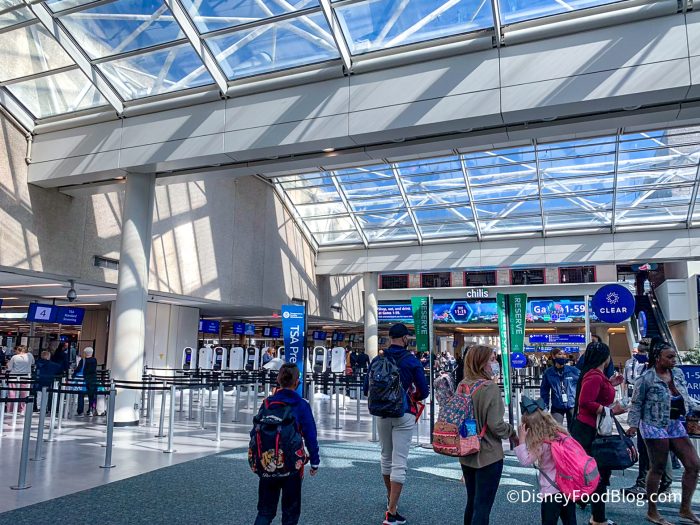

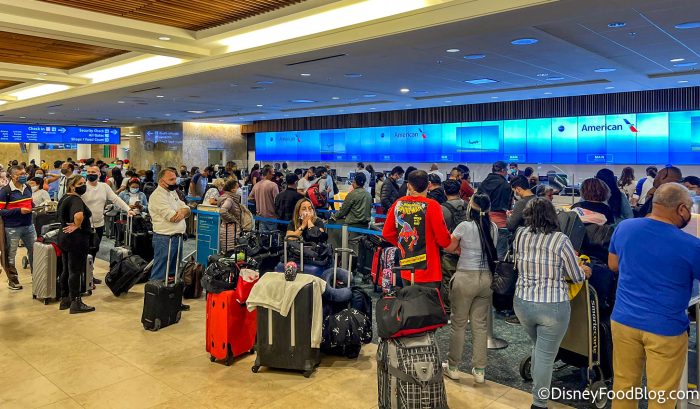
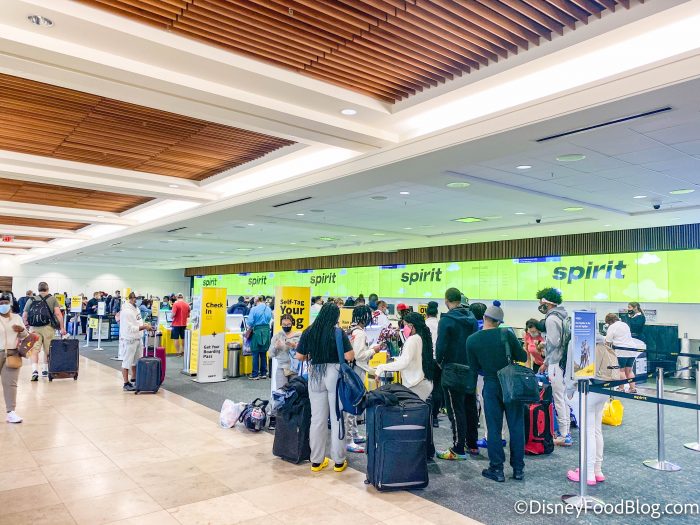
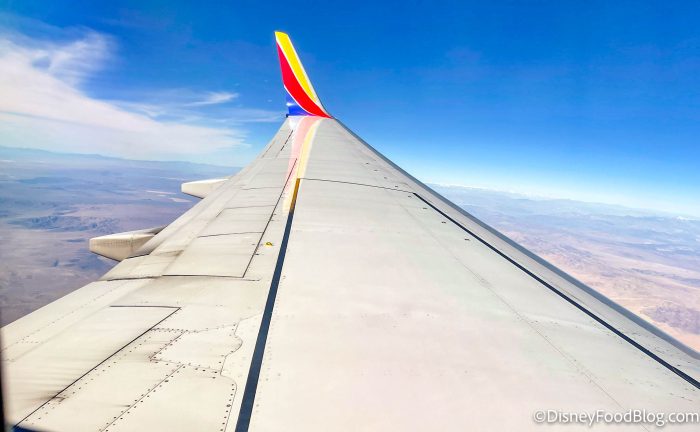

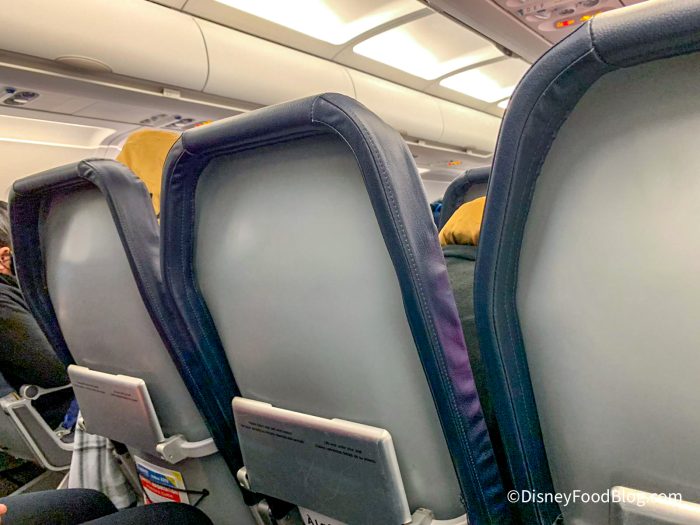
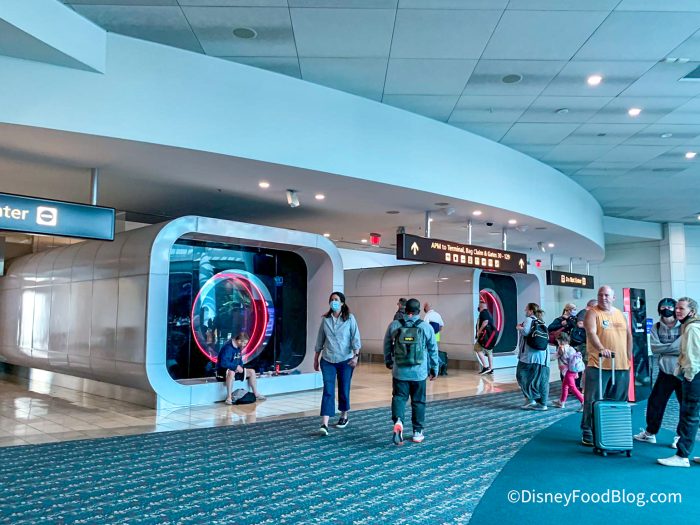

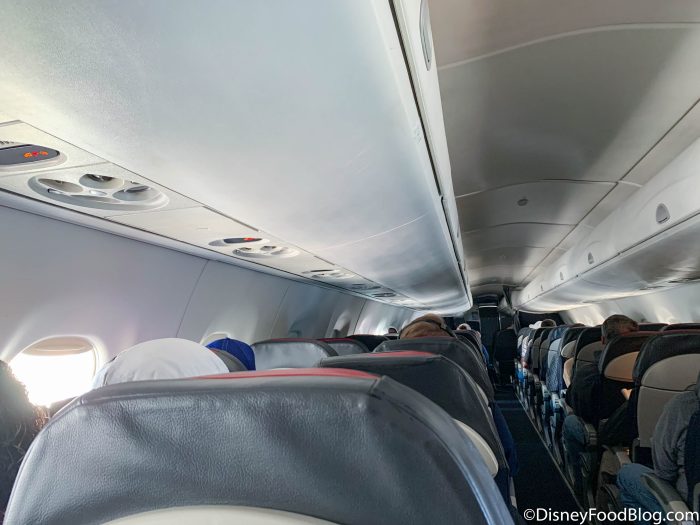
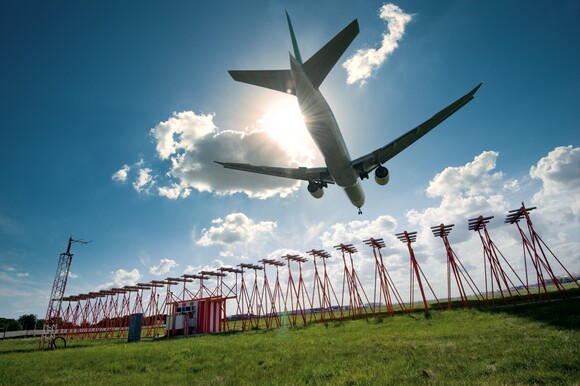


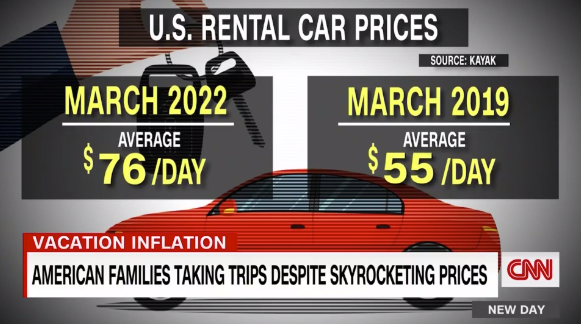


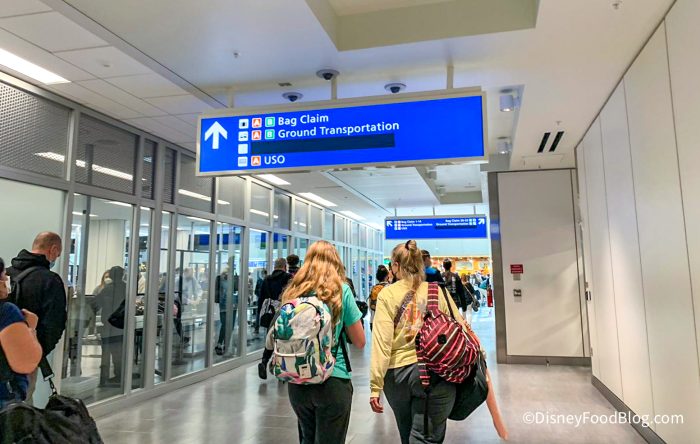


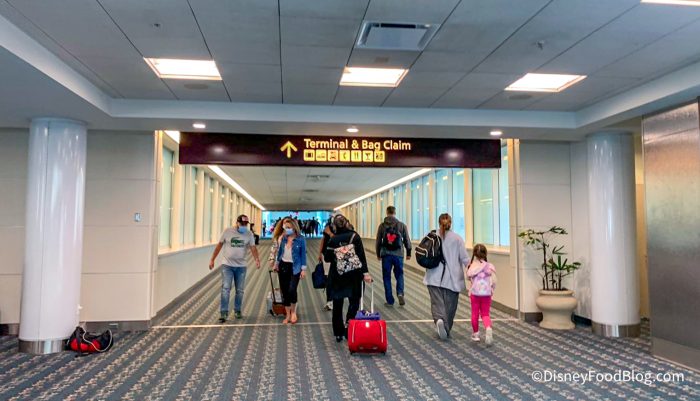
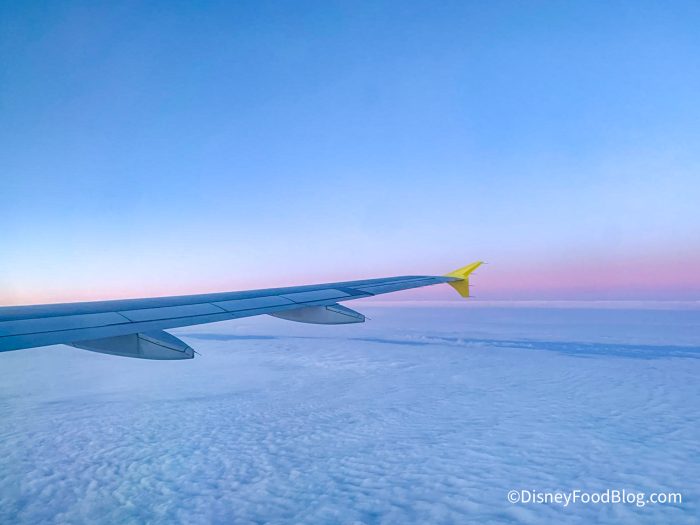
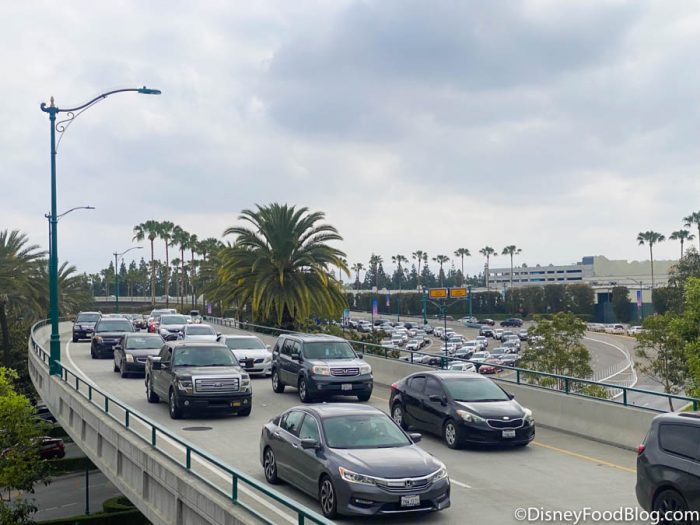
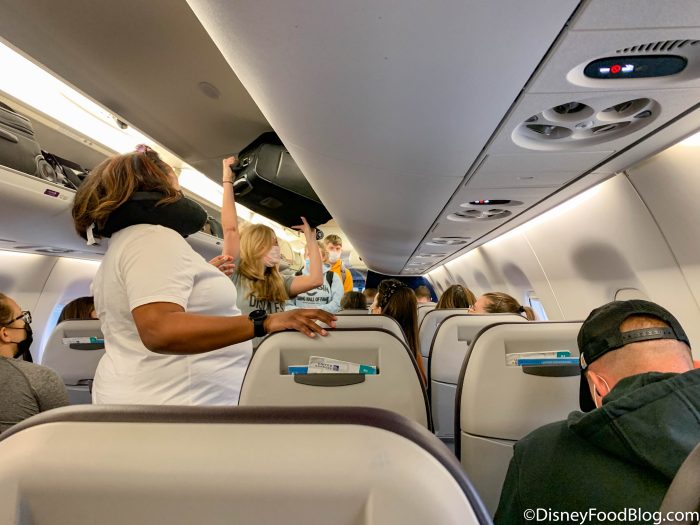
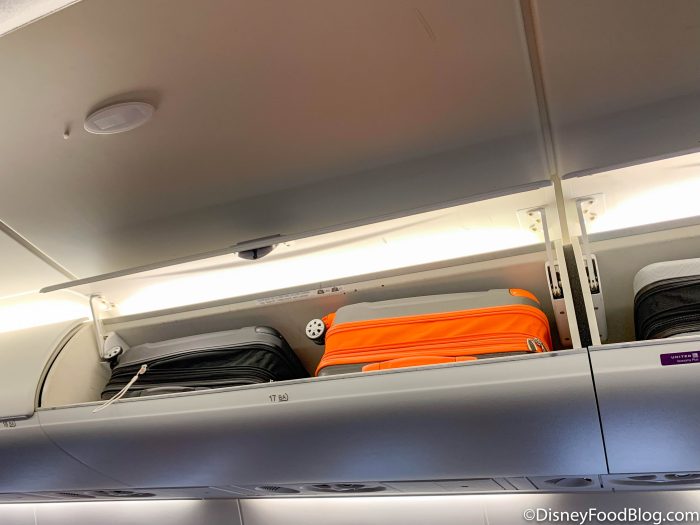





















 Our handy (and portable!) ebook guides make sure you get the best deals and can plan a vacation of a lifetime.
Our handy (and portable!) ebook guides make sure you get the best deals and can plan a vacation of a lifetime.

Professor Fyall Sounds like the Faucci of travel. I fly all over the world, no issues. The airlines have cur schedules so the operation can go smoothly.